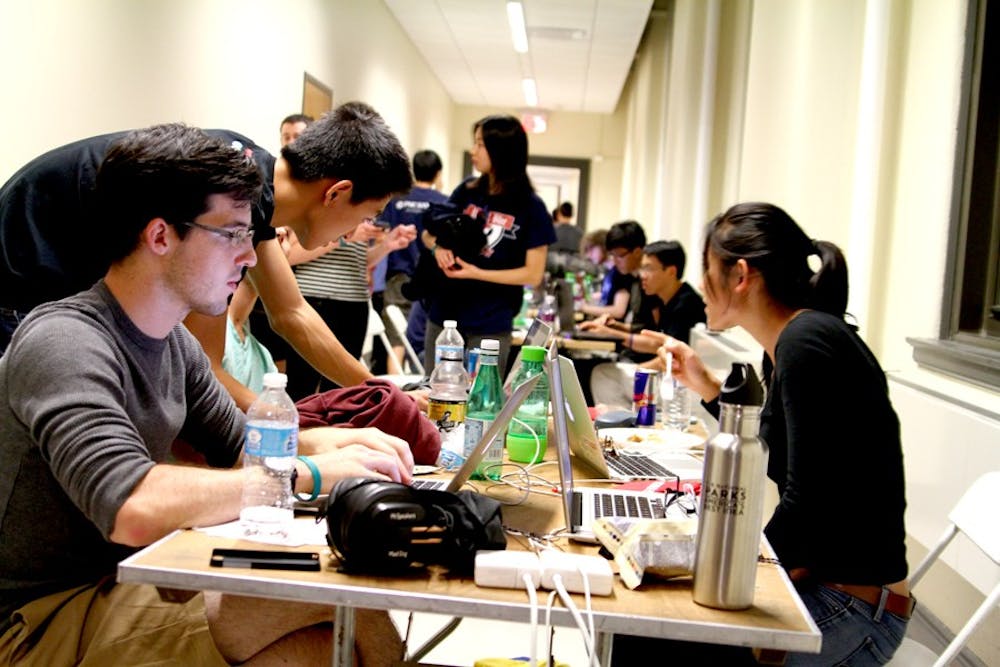Eat. Sleep. Hack.
Sunday afternoon, a crowd of computer science enthusiasts flocked to Irvine Auditorium to catch the final demos of the PennApps hackathon. The hackathon hosted more than 1,000 hackers representing 100 schools for the weekend-long competition.
Related: Swiss team ‘weighs’ in at PennApps Hackathon
The PennApps competition kicked off this year’s hacking season as the first and largest college hackathon of the semester. Here are some of the top 20 apps:
First place went to Swap, an app designed to help developers update their apps. The program circumvents the process of updating apps via the AppStore by directly and immediately sending the updated code to users’ devices. The app was created by students from the University of Chicago, Stanford University and even some high schoolers.
Super Duper Mario — an Android game that superimposes the Super Mario game onto your phone camera’s viewfinder so that the game is played in the real world — took second. This app was created by Carnegie Mellon University students.
For the third place spot, students from the National University of Singapore developed an app called Soundmesh, which can create a surround-sound system using the speakers of multiple devices. It can also sync multiple tracks from different devices and play a tune.

Among the Penn entries that made it into the final 20 were Netfixxed — which enables users to stream Netflix movies not available in your country using foreign IP addresses — and Codify, a real-time application to help create software more collaboratively. There was also the Juke team, which developed a text message-controlled music player, allowing restaurants to charge a small fee to change a song, much like an old-school jukebox.
Related: Novice Penn hackathon team codes better bulletin board
Like the Soundmesh team, there were several other entries developed by international students.
Two teams came from Switzerland, including the team that made Decrowder, which allows its users to “decrowd” photos by taking a short video and removing the moving crowds and potential photo-bombers from the image.
The winner of the MongoDB- and Comcast-sponsored prizes was Screenshades, a chrome extension that automatically filters tweets that give away spoilers to unwatched shows.
Some other top-20 apps include Synth and Bitme — both created by Penn students — which are a page-turning app for musicians and an anonymous Venmo-like transaction app for bitcoins, respectively. Also demonstrated were Musiqueue, an app that generates playlists for events by compiling the music tastes of the attendees, and VibeBack, the University of Virginia representative which lets users send text messages using only the volume buttons on their phones.
This article has been revised to reflect that this year’s hackathon was not the first to include international participants.



